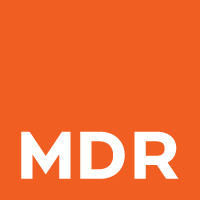First off: Digital marketing is here to stay
Letters. Photo albums. Phone calls. Even blind dates! Over the last few decades, we’ve seen that where there’s a will to go digital, there’s a way. So it’s no wonder that marketers are placing more and more emphasis on digital in their marketing mix.
According to a 2021 study by Forrester Research, an average of 46% of ad spend was spent on digital marketing. While it’s also true that software development and e-commerce account for a portion of that digital spend, it can’t be ignored that every business needs a digital marketing strategy to compete in today’s often-changing advertising landscape.
Let’s start with the digital marketing basics
In layman’s terms, digital marketing uses your budget to fund ad campaigns on digital platforms. Along with reaching your intended audience, this allows you to easily track how successful your ad campaign was once it’s completed.
Sometimes a budget allocated for digital marketing can be spent to improve a website, social media post, or blog post so that it naturally becomes more visible on Google or social media. In digital marketing, this type of process is said to be “organic,” meaning you’re not paying for a campaign—the results happen automatically without additional spend.
What are some common digital marketing terms?
Here are a few different practice areas in the digital marketing arena:
PPC / Pay-Per-Click / Google Ads
These are ads that show up at the top of Google or another search engine whenever someone searches for a given keyword. If someone clicks on the ad, you will pay a small cost for that click. The cost varies depending on the keyword, so you’ll need to dig to find a keyword that has a low cost but enough searchers to make it worthwhile. The visibility that comes with a top-ranking ad on Google and other search engines makes this form of advertising worthwhile.
Social Media
Today’s customers want to interact with brands they care about via social media more than ever before. That’s why you need to have an interactive presence on all new and emerging platforms being used by your target audience. Best of all, you can run ads that target individuals by demographics to get the maximum impact out of your social presence.
Search Engine Optimization / SEO
By making improvements to your existing website, you can maximize your natural visibility on major search engines and get more clicks that you don’t have to pay for! SEO is hard to do and will require a lot of optimizations to work properly, but in the hands of a skilled provider, you can improve your search rankings and increase your sales.
Blogging / Content Marketing
Having a blog isn’t just about posting press releases. It’s a platform that you can use to create shareable content that may rank highly for certain searches—attracting more business to your website. Content marketing is a critical piece of any solid SEO strategy, and it can pay big dividends down the road.
Email Marketing
Email can be one of the most effective ways to reach potential customers, allowing you to reach thousands of people that have opted-in and want to hear about your brand without much overhead and cost. While you’re not allowed to send unsolicited emails to people that haven’t signed up for your updates, email is still one of the best ways to connect with your customers and drive sales.
Website Development
Your website is a very critical part of your digital marketing program. Often, a customer’s first interaction with your brand is through your company website. That’s why having a well-designed website focused on generating conversions is a key strategy that’s often overlooked. PPC, SEO, Email, and Content Marketing strategies work—but you must have a good website, or you won’t get a good return on your ad spend. That’s why you should make sure your website is ready before you spend money on other aspects of digital marketing.
What to expect when running your digital marketing campaigns
While we’ve shared some great digital marketing basics, it’s important to have realistic expectations as you move toward running digital campaigns. How digital marketing results will largely depend on how you plan and implement your campaigns. If you don’t have an expert managing your project, you may not get the results you want.
If you plan your digital marketing campaign yourself, you can expect:
- Your overhead and costs will be lower. (Obviously – you’re the one running the show!)
- You will need to do your own research for keywords, which requires special tools (and most costly—time).
- If you have questions, you’ll be getting a lot of “advice” from sources on the internet that have an agenda (to sell you systems, schemes, or services).
- You will need to have a native understanding of your audience, so you know how to target the correct groups for your ad.
- Prepare yourself for less than spectacular ROI if this is your first campaign. It’s a valuable process, but you’ll still be learning what works and what doesn’t.
- When your campaign concludes, you may not fully understand the analytics behind the results.
If you hire an agency to manage your digital marketing campaign, you can expect:
- Your overhead and costs will go up. (Of course, this will happen any time you hire on a team.)
- The agency will use advanced analytical tools to target the right keywords.
- If you have questions, you’ll have a dedicated account manager to ask for help.
- The agency will get access to your existing data and analyze it, helping plan which groups to target, etc.
- If this is your first campaign, you should expect a decent-to-great ROI if your agency is worth their digital marketing salt.
- When your campaign concludes, you’ll get a detailed breakdown of how things went from your agency and have the results explained in a way that makes sense.
Want to Know More? MDR is Here to Help
If you have questions about how digital marketing can help your business, the experienced team at MDR is here to help. Reach out to us by giving us a call or contact us through our website—and see how we can take your business to the next level.

